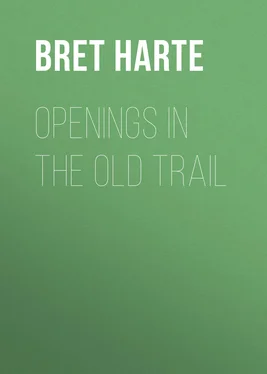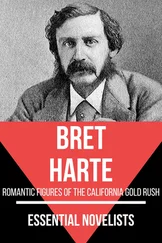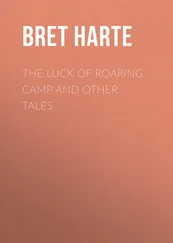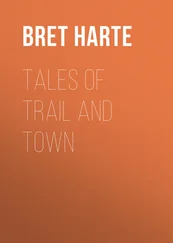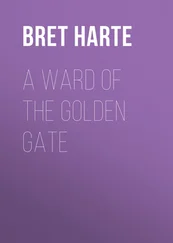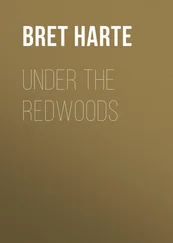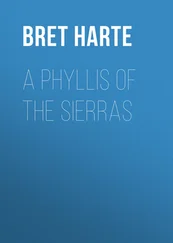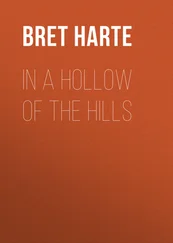Bret Harte - Openings in the Old Trail
Здесь есть возможность читать онлайн «Bret Harte - Openings in the Old Trail» — ознакомительный отрывок электронной книги совершенно бесплатно, а после прочтения отрывка купить полную версию. В некоторых случаях можно слушать аудио, скачать через торрент в формате fb2 и присутствует краткое содержание. Жанр: foreign_sf, literature_19, foreign_antique, foreign_prose, на английском языке. Описание произведения, (предисловие) а так же отзывы посетителей доступны на портале библиотеки ЛибКат.
- Название:Openings in the Old Trail
- Автор:
- Жанр:
- Год:неизвестен
- ISBN:нет данных
- Рейтинг книги:3 / 5. Голосов: 1
-
Избранное:Добавить в избранное
- Отзывы:
-
Ваша оценка:
- 60
- 1
- 2
- 3
- 4
- 5
Openings in the Old Trail: краткое содержание, описание и аннотация
Предлагаем к чтению аннотацию, описание, краткое содержание или предисловие (зависит от того, что написал сам автор книги «Openings in the Old Trail»). Если вы не нашли необходимую информацию о книге — напишите в комментариях, мы постараемся отыскать её.
Openings in the Old Trail — читать онлайн ознакомительный отрывок
Ниже представлен текст книги, разбитый по страницам. Система сохранения места последней прочитанной страницы, позволяет с удобством читать онлайн бесплатно книгу «Openings in the Old Trail», без необходимости каждый раз заново искать на чём Вы остановились. Поставьте закладку, и сможете в любой момент перейти на страницу, на которой закончили чтение.
Интервал:
Закладка:
He paused, and to his surprise her listless “company” face lit up with an adorable smile. “Of course!—ketch him!” she said. “Was he mad when you told him?” She put her knees comfortably together and leaned forward for a reply.
For all that, wild horses could not have torn from the Colonel a word about Hotchkiss’s anger. “He expressed his intention of employing counsel—and defending a suit,” returned the Colonel, affably basking in her smile.
She dragged her chair nearer his desk. “Then you’ll fight him tooth and nail?” she asked eagerly; “you’ll show him up? You’ll tell the whole story your own way? You’ll give him fits?—and you’ll make him pay? Sure?” she went on breathlessly.
“I—er—will,” said the Colonel, almost as breathlessly.
She caught his fat white hand, which was lying on the table, between her own and lifted it to her lips. He felt her soft young fingers even through the lisle-thread gloves that encased them, and the warm moisture of her lips upon his skin. He felt himself flushing—but was unable to break the silence or change his position. The next moment she had scuttled back with her chair to her old position.
“I—er—certainly shall do my best,” stammered the Colonel, in an attempt to recover his dignity and composure.
“That’s enough! You’ll do it,” said she enthusiastically. “Lordy! Just you talk for ME as ye did for HIS old Ditch Company, and you’ll fetch it—every time! Why, when you made that jury sit up the other day—when you got that off about the Merrikan flag waving equally over the rights of honest citizens banded together in peaceful commercial pursuits, as well as over the fortress of official proflig—”
“Oligarchy,” murmured the Colonel courteously.
–“oligarchy,” repeated the girl quickly, “my breath was just took away. I said to maw, ‘Ain’t he too sweet for anything!’ I did, honest Injin! And when you rolled it all off at the end—never missing a word (you didn’t need to mark ‘em in a lesson-book, but had ‘em all ready on your tongue)—and walked out—Well! I didn’t know you nor the Ditch Company from Adam, but I could have just run over and kissed you there before the whole court!”
She laughed, with her face glowing, although her strange eyes were cast down. Alack! the Colonel’s face was equally flushed, and his own beady eyes were on his desk. To any other woman he would have voiced the banal gallantry that he should now, himself, look forward to that reward, but the words never reached his lips. He laughed, coughed slightly, and when he looked up again she had fallen into the same attitude as on her first visit, with her parasol point on the floor.
“I must ask you to—er—direct your memory to—er—another point: the breaking off of the—er—er—er—engagement. Did he—er—give any reason for it? Or show any cause?”
“No; he never said anything,” returned the girl.
“Not in his usual way?—er—no reproaches out of the hymn-book?—or the sacred writings?”
“No; he just QUIT.”
“Er—ceased his attentions,” said the Colonel gravely. “And naturally you—er—were not conscious of any cause for his doing so.”
The girl raised her wonderful eyes so suddenly and so penetratingly without replying in any other way that the Colonel could only hurriedly say: “I see! None, of course!”
At which she rose, the Colonel rising also. “We—shall begin proceedings at once. I must, however, caution you to answer no questions, nor say anything about this case to any one until you are in court.”
She answered his request with another intelligent look and a nod. He accompanied her to the door. As he took her proffered hand, he raised the lisle-thread fingers to his lips with old-fashioned gallantry. As if that act had condoned for his first omissions and awkwardness, he became his old-fashioned self again, buttoned his coat, pulled out his shirt frill, and strutted back to his desk.
A day or two later it was known throughout the town that Zaidee Hooker had sued Adoniram Hotchkiss for breach of promise, and that the damages were laid at five thousand dollars. As in those bucolic days the Western press was under the secure censorship of a revolver, a cautious tone of criticism prevailed, and any gossip was confined to personal expression, and even then at the risk of the gossiper. Nevertheless, the situation provoked the intensest curiosity. The Colonel was approached—until his statement that he should consider any attempt to overcome his professional secrecy a personal reflection withheld further advances. The community were left to the more ostentatious information of the defendant’s counsel, Messrs. Kitcham and Bilser, that the case was “ridiculous” and “rotten,” that the plaintiff would be nonsuited, and the fire-eating Starbottle would be taught a lesson that he could not “bully” the law, and there were some dark hints of a conspiracy. It was even hinted that the “case” was the revengeful and preposterous outcome of the refusal of Hotchkiss to pay Starbottle an extravagant fee for his late services to the Ditch Company. It is unnecessary to say that these words were not reported to the Colonel. It was, however, an unfortunate circumstance for the calmer, ethical consideration of the subject that the Church sided with Hotchkiss, as this provoked an equal adherence to the plaintiff and Starbottle on the part of the larger body of non-churchgoers, who were delighted at a possible exposure of the weakness of religious rectitude. “I’ve allus had my suspicions o’ them early candle-light meetings down at that gospel shop,” said one critic, “and I reckon Deacon Hotchkiss didn’t rope in the gals to attend jest for psalm-singing.” “Then for him to get up and leave the board afore the game’s finished and try to sneak out of it,” said an other,—“I suppose that’s what they call RELIGIOUS.”
It was therefore not remarkable that the court-house three weeks later was crowded with an excited multitude of the curious and sympathizing. The fair plaintiff, with her mother, was early in attendance, and under the Colonel’s advice appeared in the same modest garb in which she had first visited his office. This and her downcast, modest demeanor were perhaps at first disappointing to the crowd, who had evidently expected a paragon of loveliness in this Circe of that grim, ascetic defendant, who sat beside his counsel. But presently all eyes were fixed on the Colonel, who certainly made up in his appearance any deficiency of his fair client. His portly figure was clothed in a blue dress coat with brass buttons, a buff waistcoat which permitted his frilled shirt-front to become erectile above it, a black satin stock which confined a boyish turned-down collar around his full neck, and immaculate drill trousers, strapped over varnished boots. A murmur ran round the court. “Old ‘Personally Responsible’ has got his war-paint on;” “The Old War-Horse is smelling powder,” were whispered comments. Yet for all that, the most irreverent among them recognized vaguely, in this bizarre figure, something of an honored past in their country’s history, and possibly felt the spell of old deeds and old names that had once thrilled their boyish pulses. The new District Judge returned Colonel Starbottle’s profoundly punctilious bow. The Colonel was followed by his negro servant, carrying a parcel of hymn-books and Bibles, who, with a courtesy evidently imitated from his master, placed one before the opposite counsel. This, after a first curious glance, the lawyer somewhat superciliously tossed aside. But when Jim, proceeding to the jury-box, placed with equal politeness the remaining copies before the jury, the opposite counsel sprang to his feet.
Конец ознакомительного фрагмента.
Интервал:
Закладка:
Похожие книги на «Openings in the Old Trail»
Представляем Вашему вниманию похожие книги на «Openings in the Old Trail» списком для выбора. Мы отобрали схожую по названию и смыслу литературу в надежде предоставить читателям больше вариантов отыскать новые, интересные, ещё непрочитанные произведения.
Обсуждение, отзывы о книге «Openings in the Old Trail» и просто собственные мнения читателей. Оставьте ваши комментарии, напишите, что Вы думаете о произведении, его смысле или главных героях. Укажите что конкретно понравилось, а что нет, и почему Вы так считаете.
